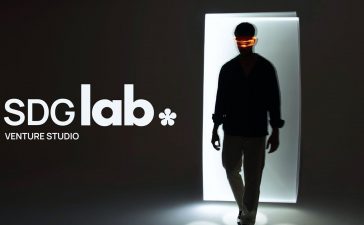ShapesXR is a collaborative spatial design app built to make it easy to prototype spatial interfaces, interactions, and environments. The company announced today it has raised an $8.6 million seed investment, part of which the company plans to use to expand to more headsets.
While so many VR interfaces and interactions borrow heavily (if not entirely) from existing ‘flat’ design paradigms, ShapesXR is built on the premise that in order to build spatial applications you need spatial design tools. With that in mind, the app functions like a freeform canvas that allows users to mock up designs inside of VR to understand how everything fits together at scale and in 3D. With collaborative functionality, multiple people can work on projects simultaneously.
Right now that collaboration is limited to those with a Quest headset, but as part of an $8.6 million seed investment, ShapesXR says it plans to expand the app to Apple Vision Pro, Pico, and Magic Leap headsets, opening the door to broader accessibility and cross-headset collaboration.

The seed investment was led by Supernode Global, with participation from Triptyq VC, Boost VC, Hartmann Capital, and Geek Ventures.
Inga Petryaevskaya, CEO and Founder of ShapesXR says, “VR has such huge potential to transform how we all collaborate on projects and design new products, however, one of the main barriers to entry is the level of technical skill required to get started. ShapesXR has been built to remove these hurdles—it’s as easy to learn as PowerPoint. This truly democratizes 3D content creation and enables anyone to become a VR, AR and mixed reality storyteller.”
Beyond just creating shapes and scenes, ShapesXR also has a ‘layers’ function which lets users create slideshows of spatial content. This works like a simple flip-book animation, except in a 3D environment instead of a flat doodle at the corner of your notebook. Using the layers function, designers can prototype and show how spatial content should interact with the user, which allows design work to be done before any of the interactions are actually programmed.
“ShapesXR’s goal is to become the de facto industry standard for [spatial] UI/UX design—achieving for spatial computing what Figma did for the mobile computing era,” the company said in its seed investment announcement.












